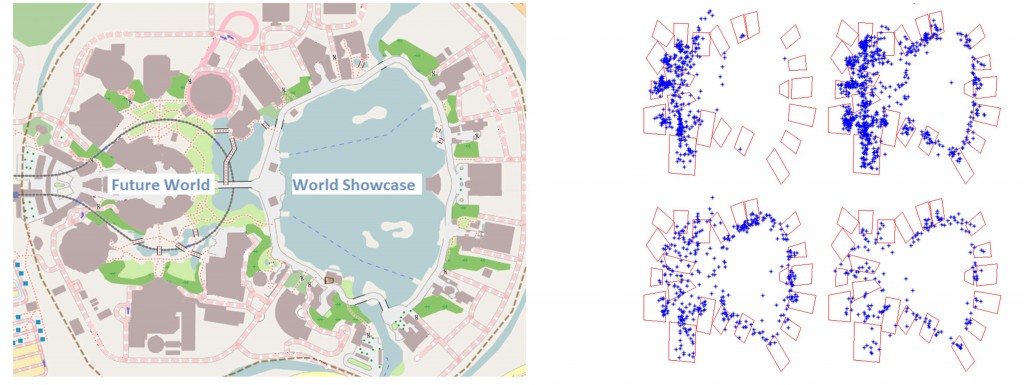Abstract

In ad hoc networks without static nodes that could be used as reference points, mobile handhelds must rely on their GPS receivers to enable location-aware services. By sharing their position estimates using short range radios, neighboring devices may suppress unnecessary GPS activations in order to reduce energy consumption. We describe and evaluate two collaborative GPS localization protocols based on substitution and averaging of position estimates. The evaluation focuses on entertainment park scenarios and relies on realistic simulations to capture the mobility of park visitors. We demonstrate that the simple collaboration protocols, which do not require distance estimation between the neighbors, may provide significant energy savings. We discuss the impact of device density and provide guidelines for choosing the transmission range of their radio interfaces.
Copyright Notice
The documents contained in these directories are included by the contributing authors as a means to ensure timely dissemination of scholarly and technical work on a non-commercial basis. Copyright and all rights therein are maintained by the authors or by other copyright holders, notwithstanding that they have offered their works here electronically. It is understood that all persons copying this information will adhere to the terms and constraints invoked by each author’s copyright. These works may not be reposted without the explicit permission of the copyright holder.